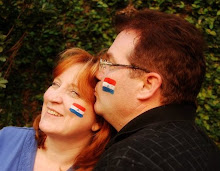"He's dead! He's dead! He's dead!" was the shout being raised through out the small village. The news roared through the houses like a wave. One woman lifting her voice to pass the awful news on to her neighbor, until it reached my own ears.
But who was dead? At this point, no one knew any longer who had died, just that the death wail had begun. One by one, people dropped whatever chore they were doing and ran towards the Monolo Clan's clearing of houses. The closer we got, the louder and more anguished the wails.
The smallest house. The house of Beti, was surrounded by people with fearful eyes and uplifted grieving voices. My husband and I worked our way through the throng and into the small round hut. We both had to duck to pass through the low door and into the dark, hot, crowded, small, one room mud hut.
The wailing by the women was even more dramatic in here as they were mostly immediate family members.
Beti is the smallest woman I have ever met, standing at barely 4' 6". Her husband had left her and her children and the rumors were he was living in Brazil with a new, younger wife. Beti's youngest child was nearly three years old, the other 4 children ranged in ages from 10 downwards.
The smallest son was lying in a hammock, naked, and dripping wet. In the corner sat a 7 year old sister, crying and pulling her hair.
My husband rushed toward the baby, I rushed to the little girl. She sobbingly told me the story.
She had been sent to the river to do laundry and had taken the youngest with her. He had cried to go along and as is fairly normal, he was taken and allowed to play on the banks or in a canoe nearby. While doing her chore, a few more children came down and the girl became distracted. She forgot about the baby brother, joined in to play, and when done, headed home towards the village. She had arrived a few moments before us to hear the wailing and realized she had forgotten her brother at the river!
Before finishing her story, my husband stood up and yelled out,
"Be quiet! He is not dead! I need to listen to his heart!"
I rushed to his side as the crowd quieted. We began CPR on the baby and after a bit, the child came to and began to cry. First weakly, but more and more robustly!
The people in the house became stone still and eerily quiet!
A new cry began!
" He's alive! He's alive! He's alive!"
Beti took the baby in her arms and rocked him as he calmed down. She told me the rest of the story. She had been to her garden and just arrived at the clearing when another woman came up the path with her son. The woman was Gloria, a christian woman, who thankfully, was not afraid to touch what she thought was a dead body.
Gloria had been paddling home in her own canoe when she found the small boy floating with the current towards her, face down in the water. She had fished him from the water, thinking him dead.
When I had seen the baby lying in the hammock, he looked lifeless and purple. My husband had been able to detect a weak pulse and had revived him.
To the Ye'kwana this seemed like a miracle of a dead one coming to life again. We explained that we had not brought him back to life, but had been able to revive the small spark of life left in him, just as the women would revive the apparently dead fire each morning by blowing and fanning the blackened embers.
We could see the comprehension arise in their eyes, but they were none the less grateful that we had been there and my husband had known to look for the " spark" and had known to breathe life back into the child so that his "fire" did not extinguish...forever.
Had we not been there, this child would have been buried by nightfall ! Instead, he is now a 16 year old, a capable hunter for his mother.
God graciously allowed us to save the child's life that day.
Wednesday, May 11, 2011
Subscribe to:
Post Comments (Atom)





1 comment:
What a fabulous story and very well-told!
Post a Comment